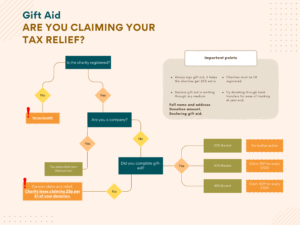Understanding Cryptocurrency Taxes in the UK
Cryptocurrency has become a popular investment and means of transaction. However, it’s important to understand the tax implications of buying, selling, and earning cryptocurrency in the UK. The HM Revenue and Customs (HMRC) has specific guidelines on how these activities are taxed.
- Capital Gains Tax (CGT)
When you dispose of cryptocurrency, such as selling it for fiat currency, trading it for another cryptocurrency, or using it to purchase goods and services, you may incur a capital gain or loss. The gain is calculated as the difference between the disposal value and the acquisition cost.
- Tax-Free Allowance: For the fiscal year 2024-25, the tax-free allowance for capital gains is £3,000.
- Tax Rates: Capital gains tax rates depend on your total taxable income:
- Basic Rate: 10%
- Higher Rate: 20%
- Additional Rate: 20%
- Income Tax
If you receive cryptocurrency as payment for services, through mining, staking, or airdrops, it is considered income and subject to income tax.
- Employment Income: If you are paid in cryptocurrency for your work, it is treated as employment income and taxed accordingly.
- Mining and Staking: Rewards from mining and staking are also considered income and must be reported on your tax return.
- Record Keeping
It’s crucial to keep detailed records of all your cryptocurrency transactions. This includes:
- Dates of transactions
- Amounts in GBP
- Nature of the transactions (buy, sell, trade, etc.)
- Costs associated with acquiring the cryptocurrency
- Filing Your Taxes
When filing your tax return, you need to report both capital gains and income from cryptocurrency. HMRC provides guidance on how to do this, and there are also crypto tax software solutions that can help you track and report your transactions accurately.
- Strategies to Reduce Tax Liability
There are legal strategies to minimize your tax liability, such as:
- Utilizing Tax-Free Allowance: Make sure to use your annual tax-free allowance.
- Offsetting Losses: You can offset capital losses against gains to reduce your taxable amount.
- Holding Period: Consider the timing of your disposals to optimize tax rates.
Conclusion
Understanding and complying with cryptocurrency tax regulations is essential for any investor or trader in the UK. By keeping accurate records and being aware of the tax implications, you can ensure that you meet your tax obligations and potentially reduce your tax liability.









